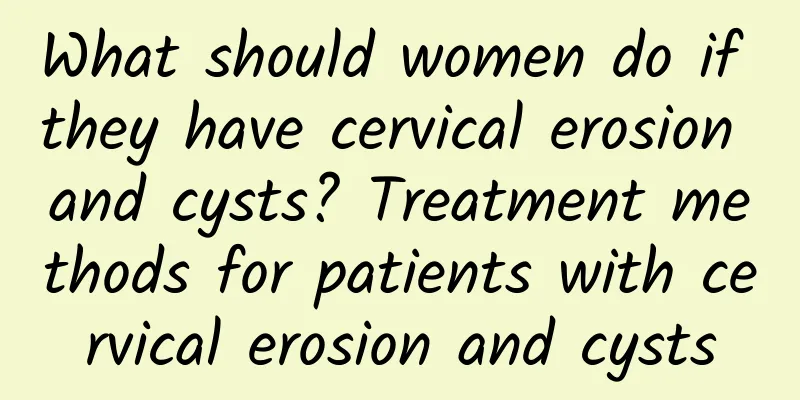Why is there fluid accumulation around the gestational sac? There are 4 reasons

|
The accumulation of fluid around the gestational sac is a problem that is neither big nor small. The specific solution should be based on the cause of its occurrence. If the woman's body does not have other abnormal discomfort symptoms, it may be caused by uterine enlargement, which does not need to be overly worried. However, if it is caused by uterine abruption, poor sperm and follicle quality, and disease factors, then timely treatment for pregnancy preservation is required. Generally speaking, during pregnancy, women's bodies often have some abnormalities due to various reasons. For example, there is fluid accumulation around the gestational sac. The accumulation of fluid around the gestational sac is a problem that is neither big nor small. It can only be solved according to the specific cause. So, what is the matter with the accumulation of fluid around the gestational sac? |
<<: What are the symptoms of uterine effusion and how to treat it?
>>: How to treat uterine effusion in early pregnancy? Is it physiological or pathological?
Recommend
What are the harms of abortion to the human body? Abortion will cause these serious harms to the body
Everyone is familiar with abortion, thanks to the...
Will cervical erosion affect pregnancy? Women with cervical erosion should be careful about these 3 situations
Generally speaking, cervical erosion will not aff...
The health code of eating leeks to lower blood lipids is hidden in the taste
"Boss, I want 10 leek dumplings for you to e...
Mark's mother's leg beauty technique: tapping the gallbladder meridian and scraping the liver meridian
The flesh on the inner thighs is connected togeth...
The main causes of acute pelvic inflammatory disease are as follows
In recent years, the incidence of pelvic inflamma...
Cucumber and egg weight loss method! Healthy weight loss and beauty
Cucumbers and eggs are both good products for wei...
Vulva sometimes itches and leucorrhea is abnormal
Vulvar itching with abnormal leucorrhea may be ca...
Avoid stress fat! Eat the right 5 nutrients to relieve your mood and prevent weight gain
Whenever you feel stressed, you can’t resist your...
I have an ectopic pregnancy. What is going on?
Many female friends are very surprised when they ...
What are the dangers of having sex 20 days after an abortion?
If you have sex too soon after surgery, bacteria ...
My period was delayed for ten days but my breasts hurt for half a month. Why?
My period was delayed for ten days but my breasts...
Is it okay to have an IUD for patients with adenomyosis?
Is it good for patients with adenomyosis to have ...
What is vulvar leukoplakia and what to do
Vulvar leukoplakia generally refers to localized ...
What are the symptoms of biochemical miscarriage?
I believe everyone is very familiar with the term...
What are the surgical treatments for uterine fibroids?
The cause of uterine fibroids is still unclear. I...









